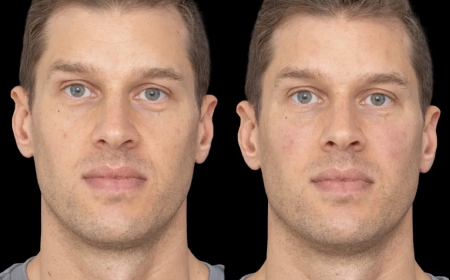The Role of Bone Grafts in Ensuring Implant Success
Trusted Lisburn dentists offer bone grafting tailored to you, helping ensure long-term success for your dental implants.

A complete, healthy smile plays a crucial role not only in appearance but in oral function and long-term health. Dental implants have become a trusted solution for missing teeth due to their stability, durability, and natural appearance. However, not all patients qualify for implants right away. A key element for successful implants is having sufficient jawbone density and volume. This is where bone grafting steps in a preparatory and often necessary phase that supports successful implant outcomes.This blog explores how bone grafts aid in dental implant procedures, when they're needed, what types are available, and how a strategic approach led by a qualified professional can make all the difference.
Why Bone Health Is Vital for Dental Implants
Dental implants depend on osseointegration, the process in which the implant bonds firmly with the jawbone. For this to happen, the bone must have adequate height, width, and density. When theres insufficient bone, the implant may fail to stabilise or even be impossible to place.
Several factors can lead to bone loss:
- Prolonged tooth loss without replacement
- Periodontal (gum) disease
- Trauma or injury to the jaw
- Bone resorption following extraction
- Congenital defects or developmental conditions
A qualifieddentist in Lisburncan assess your bone levels and determine whether a graft is required before proceeding with implant treatment.
Understanding Bone Grafting in Dentistry
Bone grafting is a minor surgical procedure designed to augment or rebuild the bone in the jaw to create a solid foundation for implants. The graft acts as a scaffold that encourages the body to produce new bone cells. Over time, the graft material is absorbed and replaced with the patient's natural bone.
There are various types of graft materials, including:
- Autograft:Bone harvested from the patient (e.g. hip or chin)
- Allograft:Bone from a human donor, processed for safety
- Xenograft:Bone from an animal source, usually bovine
- Synthetic grafts:Artificial materials designed to replicate the characteristics of natural bone.
A skilled dentist in Lisburn will help choose the most appropriate material based on your health, budget, and dental goals.
When Is Bone Grafting Necessary?
Bone grafts are often needed in the following scenarios:
- Tooth extractions where the bone needs preservation
- Patients with advanced gum disease
- Long-term edentulism (missing teeth) resulting in significant bone loss
- Jawbone damage due to trauma or infection
- Preparation for full-arch implant-supported restorations
Its important to note that early intervention after tooth loss can reduce the need for future bone grafting.
Varieties of Bone Grafts Utilised in Dental Implant Treatments
There are several grafting techniques used depending on the patients condition and implant site. Here's a simplified breakdown:
|
Graft Type |
Purpose |
Timing |
|
Socket Preservation |
Prevents bone shrinkage after extraction |
Immediately post-extraction |
|
Ridge Augmentation |
Rebuilds bone width/height for implant support |
Before implant placement |
|
Sinus Lift |
Adds bone to the upper jaw below sinus cavity |
Typically pre-implant |
These procedures are often minor and carried out under local anaesthetic, ensuring comfort throughout the process.
What to Expect During the Bone Grafting Process
The grafting journey begins with a comprehensive evaluation that includes X-rays or a 3D scan to determine the extent of bone loss. After confirming the need for a graft, your dental professional will:
- Numb the area with local anaesthesia
- Make a small incision in the gum
- Place the grafting material
- Secure the site, sometimes using a membrane or mesh
- Stitch the gum back into place
Healing typically takes 3 to 6 months, depending on the graft type and the patients health. Only once the bone has fully integrated will your dental implant Lisburn journey continue.
Why Bone Grafting Improves Implant Success
Investing in a bone graft upfront significantly improves the long-term outcome of your implant. Heres how it supports success:
- Provides sufficient bone volume:Ensures the implant anchor remains stable
- Improves aesthetics:Maintains natural facial contours and gum line
- Minimised Complications:Decreases the chances of implant failure and infection.
- Expands eligibility:Makes implant treatment possible for more patients
With the guidance of a trained dentist in Lisburn, the entire process is planned with your long-term dental health in mind.
Post-Procedure Aftercare
Proper recovery is essential to the success of your graft and eventual implant. After surgery, your dentist will offer specific instructions tailored to your case, but general guidelines include:
- Managing Discomfort:Use of over the counter or prescribed pain medications.
- Oral hygiene:Use antibacterial rinses; avoid brushing the area initially
- Diet:Stick to soft foods and avoid chewing near the graft site
- Smoking:Avoid completely, it impairs healing and bone growth
- Follow-up:Attend all check-ups to monitor healing progress
These small steps play a huge role in yourdental implant Lisburnjourney by protecting the foundation being created for your new tooth.
Risks and Considerations
While bone grafting is generally safe, all procedures carry some level of risk. Potential issues include:
- Infection at the graft site
- Graft failure or delayed integration
- Swelling or discomfort post-procedure
- Sinus complications (for upper jaw grafts)
That said, complications are rare when the procedure is performed by an experienced dental professional. Choosing a reputable clinic ensures risks are identified early and managed promptly.
Alternatives If Grafting Isnt an Option
In some rare cases where bone grafting isn't suitable, patients may consider:
- Zygomatic implants:Longer implants anchored into the cheekbone
- Mini implants:Require less bone but may have limitations in strength
- Removable dentures or bridges:Non-surgical tooth replacement options
Your treatment plan will be tailored to your unique dental history and goals.
Conclusion
Bone grafting goes beyond preparation for implants, it's a crucial step that supports the long-term health and success of your smile. Whether you're missing one tooth or considering full-arch restorations, ensuring adequate bone support can mean the difference between short-term fixes and lasting results.When performed under the care of an experienced professional, bone grafting can restore your jaws strength and shape, paving the way for successful implantation. For those seeking long-term, natural-looking results, expert guidance is key. At Lisburn, our team offers advanced diagnostics, customised grafting solutions, and long-term care strategies to support every step of your implant journey.


































